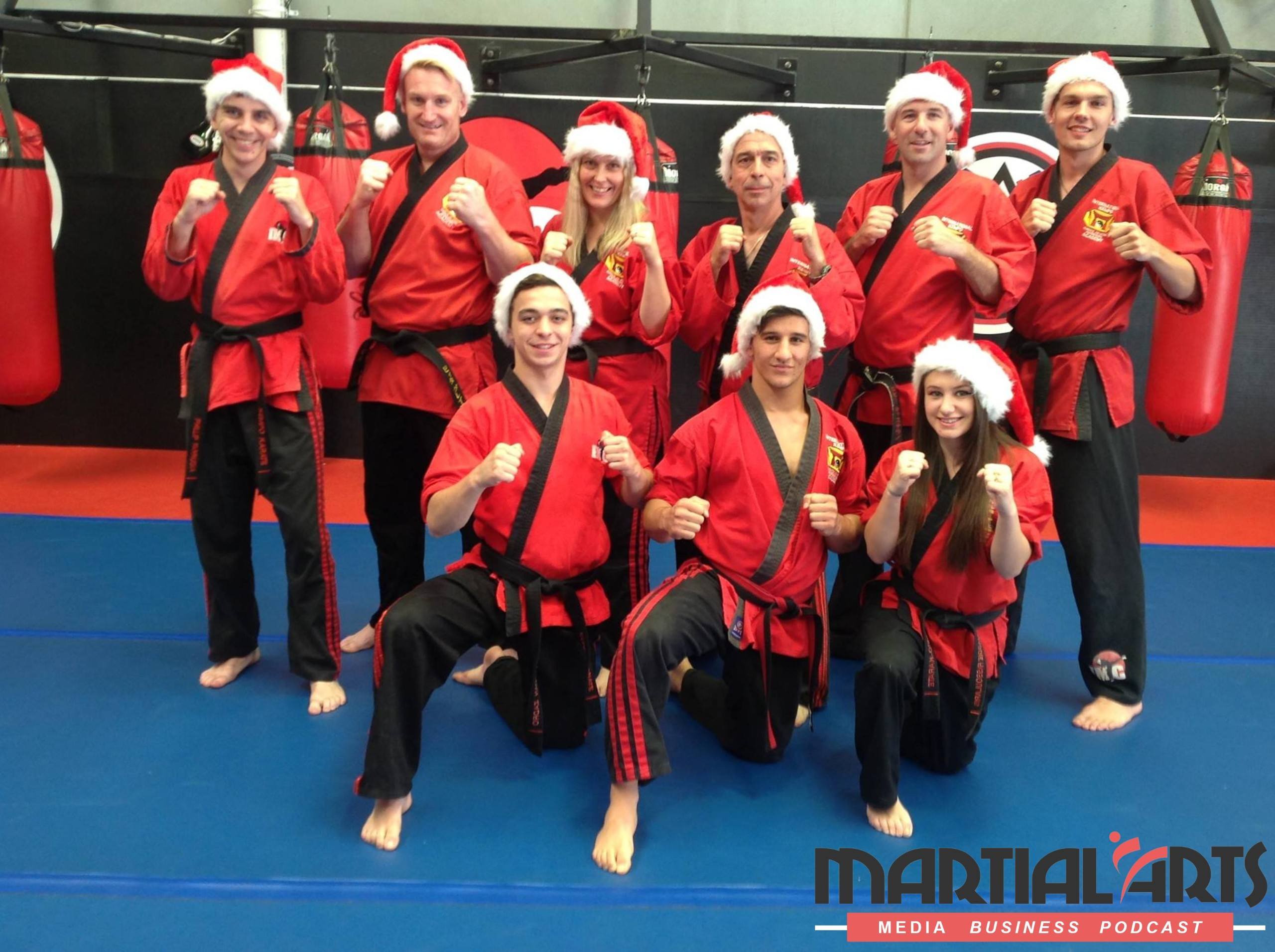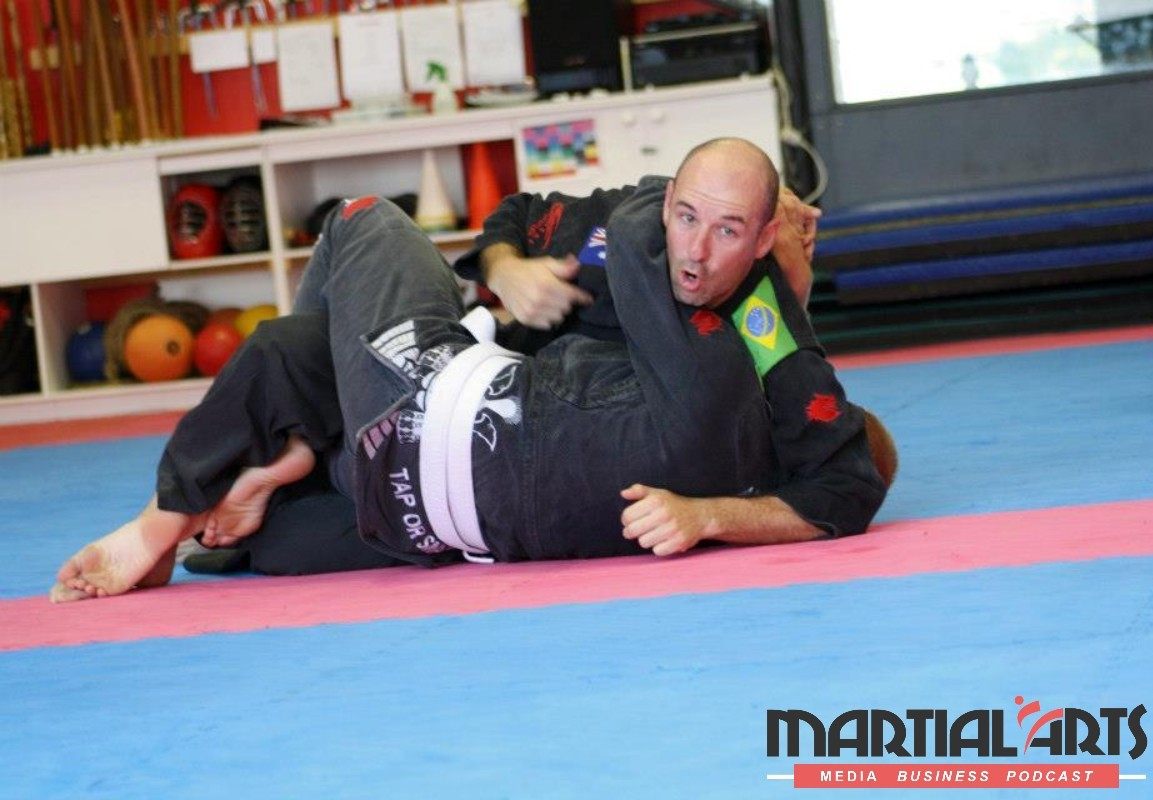Geordie's life is 24/7 martial arts! We discuss creating your own style, tournaments, optimising KPI's and more.
IN THIS EPISODE, YOU WILL LEARN:
- How Geordie was able to develop his own martial arts style and why he refers to it as the best style
- How he started teaching combat sports in the Australian army
- The three battles one must win in self-defence
- How to host successful martial arts tournaments
- How to optimise key performance indicators in your school
- And more
*Need help growing your martial arts school? Learn More Here.
TRANSCRIPTION
If you can put those sorts of things together and you can work out what makes an elite athlete, what things should you focus on and you apply it to your business, OK, what makes a really good class? What makes a really good ad?
And even if the ad is to a completely different thing, or your classes are a completely different style, you can just put those key factor and key components together and work out what it is that's really important.
GEORGE: Hey, George here – welcome to another episode of the Martial Arts Media business podcast. This episode is going to be a little bit different. We’re busy driving in a car, we just finished an event in Sydney and I've got with me Geordie and Giorgio.
GIORGIO: How's it going guys?
GEORGE: Good, and I'm speaking today to someone I've been trying to interview for quite a long time and he's been hard to track down, but I'm finally in a car with him and he can't escape. So, welcome to the show Geordie Lavers McBain.
GEORDIE: Thanks for having me on George.
GEORGE: Cool, so just for the sound, I'm going to be passing the phone up and down. So we might sound like we’re going in and out, but here we go.
So first up Geordie – thanks for being on the call. Just for everyone that doesn't know who you're, you own multiple schools, you've got a long history in martial arts – give us the two-minute take – who's Geordie Lavers McBain?
GEORDIE: Ok, that's a complicated question. I'm a martial artist, I like just about all styles of martial arts. I teach my own style of martial arts in my school and I have a lot of combat sports that I also teach. I teach wrestling, Brazilian jiu-jitsu, Muay Thai, MMA, I have guys who fight in Kyokushin, boxing – lots of different styles of combat sports, but I also have my own style of martial arts, which I've sort of combined with all the different styles that I've done over the years.
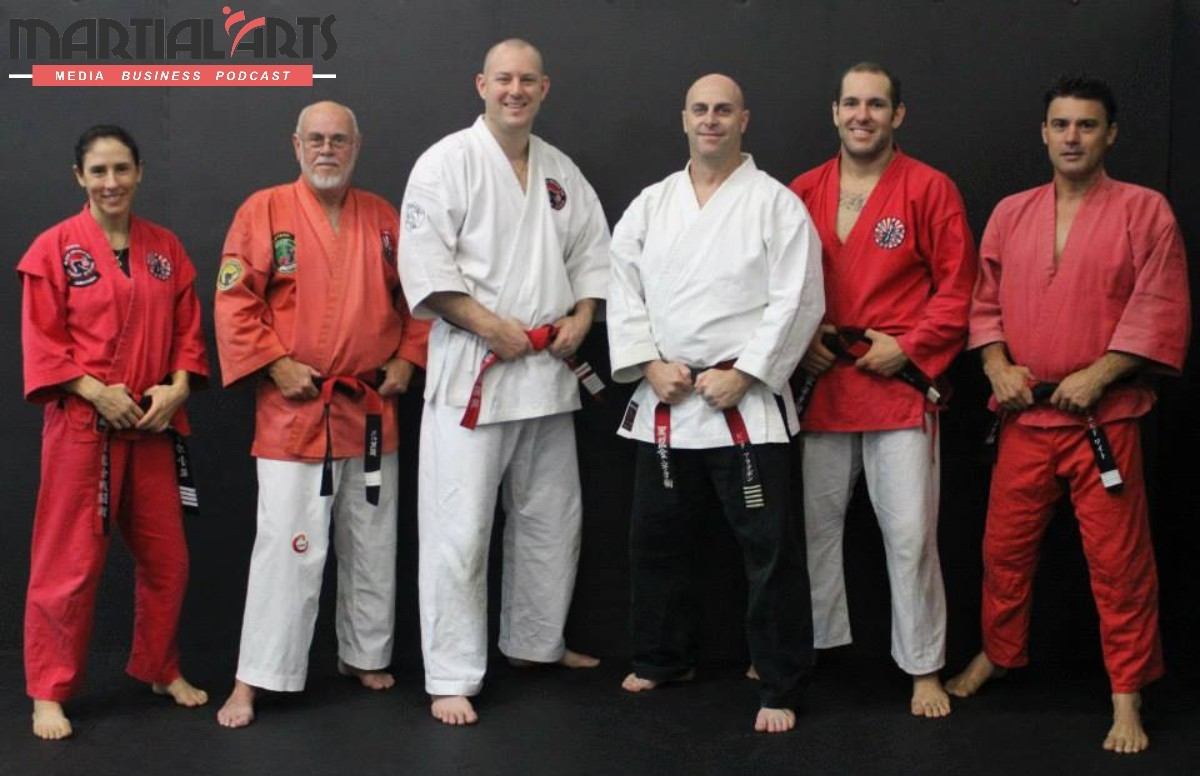
I've done a variety of different things, and have black belts in different things, so… yeah, so that's what I do there. Also, around jiu-jitsu tournaments in Queensland and wrestling tournaments in Queensland and I also am a defence force contractor with the army. I go on base two times a week and teachgrappling, close quarters grappling and different things like that, so it's pretty much me I guess.
GEORGE: Pretty much, but that's quite a full plate. So there's a lot of places we could start. I guess just starting – how did you get around to developing your own style?
GEORDIE: Yeah, so my own style was a combination, so basically what happened was, many years ago I've trained in a lot of different styles of martial arts, so I started teaching Zen Do Kai way back in the day and my instructor ended up leaving Zen Do Kai and then he sort of went on a different path, so I started doing my own system. And Zen Do Kai was the best of everything in progression, but I really sort of took that to heart.
So I started sort of thinking about, what other things I can incorporate into what we do. I looked at different ways to test that, so I bounced for about 15 years, so I sort of worked at a few things that worked in that environment. Also, I sort of was just looking at different ways that we could test things, such as like, how do we work out if body punctures were effective for multiple areas.
So, if I'm doing boxing and I’ve got a big glove on, I punch someone in the stomach and that works, then I put on say, a smaller glove in the Thai boxing sort of arena and I punch him in the stomach and it still works. Then I get a smaller glove, like in MMA glove and punch him in the stomach and it still works and then I put on like a little padded piece of felt, like in Kudo, and you still punch someone in the stomach and it works. Then you go in Kyokushin, you punch them in the stomach it works, it's kind of like, well that punch is probably universally going to work because it's worked against fully resisting opponents, so we’ll incorporate that into our martial arts system.
But anything which only really sports specific, or only sort of works in one environment, we tend not to focus on that in our core curriculum and that's something that if people want to do, then they're going to learn that as an extra. So if someone becomes like an elite level jiu-jitsu player, and they want to learn some inverted guard or something, that's fine, that's something we’ll teach to them.
But in the context about martial arts curriculum, we’re not going to do that, because it’s not going to work in other environments, it's not going to work against someone in the streets, it's not going to work against multiple people, it’s not going to work when someone's armed, we’re probably not going to worry about incorporating an inverted guard in that sort of scenario, so we take that out of our curriculum. So we just try to have something which is really practical.
GEORGE: Got to say, how do you prioritize all that? Because I mean, that's a lot going on, is your own style sort of the top priority or what you focus on in the school? How do you juggle in between them all?
GEORDIE: Yeah, so my own style is kind of like my legacy I guess because it’s my style. People say what's the best style in the world and the normal answer is there isn't one. But when you have your own style and you have complete control over what the curriculum is, then it should be your style. So I believe that my style is the best style in the world because it's the best style for me. And if it wasn't, there was something that wasn't practical or something I didn't agree with, I could change it immediately and then it becomes the best style again.
So, that is my kind of hope for my legacy, our future generations and so on. It's my pressure testing and constantly re-evaluating through all the different combat sports we do, plus the stuff I do with the army. Plus different other groups of people that I teach in different contexts and environments, we sort of look at that. But as far as… basically we have grappling without a Gi, grappling with a Gi, striking without a Gi, striking with one and combine them together, with a Gi, without. In combat sports, sort of scenarios. And it comes together that way.
GEORGE: What a perfect… so just to give it some context as well, the question I haven't asked: so you're running multiple schools, right?
GEORDIE: Yeah, that's correct. So I have two full-time schools, which I run myself and I also have a part-time school, which I also teach at, because I train during the day near that school, so I work there. And I also have 10 other schools that my students run in different locations.
GEORGE: Cool. So, jumping over to the military – how does that fit into all this in the schedule?
GEORDIE: So, yeah, I'm there 2 days a week, so that's sort of how it fits into my personal schedule – is that what you meant?
GEORGE: Let's rephrase: first up, tell me a bit more about working with the military and how that got started.
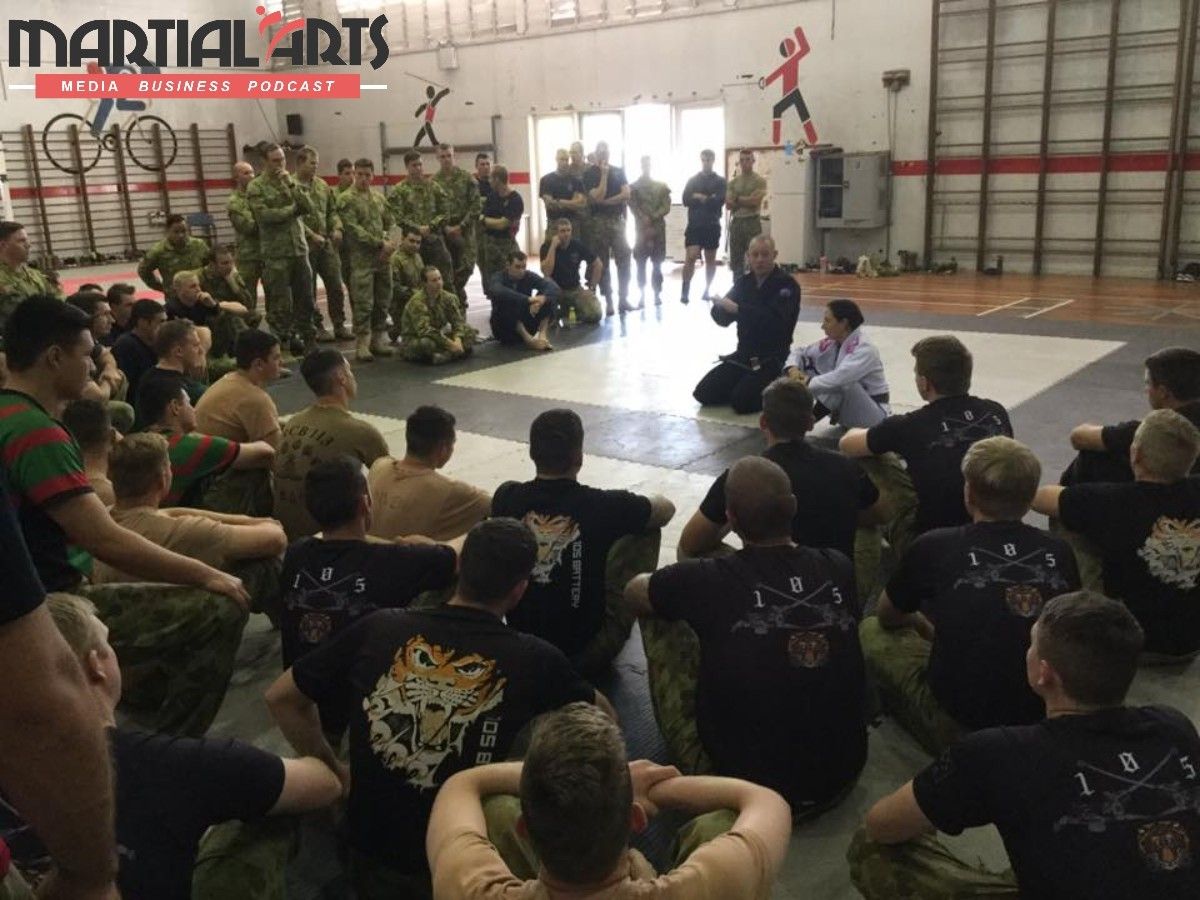
GEORDIE: Ok, yeah. So, I've always been interested in that style of things, so I've done a lot of training with different people over the years and combative training and stuff like that and tried to find the truest sources of that sort of information, first-hand knowledge and so on. And anyway, what really happened was, when Kudo first sort of started growing up in Australia, Paul Cale who is in special forces and a commando introduced me to a heap of other soldiers that were all in the special forces still, they were soldiers that were involved in that combative style thing on base and on different bases all around. And through that, I got to meet these different people and then I eventually got invited onto a base to teach a seminar.
From that seminar, I got invited back again. They seemed to feel that the direction that I was teaching and the skillset which I was trying to impart, was much more along the lines of what they were after in developing with soldiers. And so from that, basically I ended up getting a defence force contract. I’ve got a pass which lets me on base any time of the day or night and I can go there all the time and train and teach and we run tournaments and competitions, with a variety of different rule sets, that sort of try to reflect the same features of what's going to happen out in the battlefield.
So what's important, how should you know that, what should people be able to do, what shouldn't they be able to do. If you've got all your gear on and you're rolling around on the ground, there are certain positions that just aren't going to work for you. If someone is… essentially, you've got your primary weapon, you've got your secondary weapon, which is both firearms. Then you've got a knife, which is usually on your hip, and you got to the last resort knife on your chest and how do we incorporate those sorts of things in close quarters and what stuff is happening from there.
Paul Cale worked the Australian combative program, so the army can use his program, which everybody in the Australian army has to know. And this sort of stuff is a continuation training, so away soldiers, once they’ve got their basic force down, they can continue on with those same goals and mindsets in place, of, be aggressive, push forward, never give up and other features of that.
For example, we don't do leg locks whatsoever in the army when we’re grappling, because… a few things. One, you've got boots on, too, if I'm playing with your legs, you can stab me or shoot me and usually when you go for a leg submission, you have to give up top domination to go to the bottom. In those sorts of circumstances, it's really not advantageous. So we’ve just got to make sure that were always staying with that mindset of, how do we get back on the Gi that we’re meant to be using and rather than make it into a mixed martial arts match or something like that, everything has to be always focused towards moving towards your objective in that situation.
We try to do our finals in a cage, because when you're doing room clearance drills and in urban warfare, if you kick a door and you have to go in and get someone, what's going to happen if you're going to be up against a wall. You're going to be up against something in that, they might put you against it, or you might put them against it. So we have to do a lot of drills that sort of relate to that and a lot of different martial arts styles have drills, they fight people against a wall, but you really can't go beyond things like, the information that the MMA has pulled out and the tactics and knowledge of that.
And then if you weaponise that and then you also have other people in your team doing the techniques, then you can really start to develop some really good tactics and then you can practice them against live people and develop competitions for them. That's what basically my role is to help do. We wear things like plate carriers, armed plate carries, which we put rubber inside of for PPE. And what happens is, you can throw people and choke them and use that against them and it becomes a little bit more realistic. And we just try to work out what tactics and what ways that can work, so… yeah. So that's pretty much how I got there and the stuff we do, I think.
GEORGE: OK. So, I mean, working at that high level of self-defence, you know, if you look at everyday martial arts schools, everybody likes to promote the aspect of self-defence: what do you feel is missing in that? I mean, if you're working on that type of level, where it has to be so realistic because it’s a life and death situation, how do you feel martial arts… What do you think martial arts schools can do better to make things a bit more realistic, or you know, up to the game with self-defence?

GEORDIE: Yeah, so pressure testing is really important. Creating dynamic simulations, where you're recreating the environment in which you're hoping to defend yourself is important. Putting people under duress and stress and seeing how they perform. Also, like for me, there are three battles you've got to win in self-defence. So the first battle you have to win is an immediate physical battle, which is right now. There are enough techniques out there in the martial arts world to understand that.
Certain situations are going to be more extreme, a lot of people don't practice defending another person, or defending against somebody else with somebody else, but that sort of stuff probably isn't as important as making sure you've got some more fundamental, physical skills. And if you want to win the physical battle, that's anywhere from an hour to three seconds to two minutes, or you know, it really depends on how long it goes. Some self-defence situations can take a long time, others are over in a split second.
But you've got to move on to the next one, which is your legal battle. Even in the military, there are rules of engagement. Everyone is sort of obliged to follow some rules. And you have to follow those rules, if you don't, you're in breach of that. And in the real world, as a civilian, if we don't follow those rules, we might go to jail for the next 25 years.
And then, of course, you've got to win the moral battle, which is the last battle. Which is the battle of, are you happy with what you did? So, uncle Bob is there at Christmas time, he's had too much to drink and he grabs the butter knife and he threatens you with it. You know, it's a lethal weapon and you poke him in the eye with your finger and he's blind and every Christmas, you have to go back and see uncle Bob and your grandma won't talk to you anymore, because he's wearing a patch over his eye. Your mom won't speak so much to you, because you blinded Uncle Bob.
You're having a bit of trouble sleeping because you never really thought you're going to poke someone in the eye. It was a bit squishy and you sort of feel that every time you pick up something which is a bit squishy and it gives you nightmares. You're sort of losing that moral battle and if it's really full on, maybe that's going to be… Your life is now upset by that, you can't sleep every night, you're getting nightmares, it’s coming back to you, all because of something you did, which you might not have really meant to do.
So the reality is, you have to already be sure of what you're going to be able to do morally before you worry about what you're going to do. And then you also have to understand legally what you're going to have to do. So realistically, the last thing is actually the physical. You have to be morally prepared for what you're going to do. You have to be legally understood, what would a reasonable person do in that situation. Did you actually fear the… In correspondence to what you actually did to the person, was there? And then, physically, were you capable of actually doing it? So, I think that probably would be a good thing to start within focusing on self-defence.
GEORGE: Awesome. So just looking at the time we have, tell me a bit more about your tournaments and that side of your martial arts?
GEORDIE: Sure. I ran my first grappling tournament in 2003 and that was like shoot wrestling, combined with Brazilian jiu-jitsu and just some guys were doing different styles, sort of submission style wrestling back then in Queensland and we just wanted to get everyone together to do a tournament, there weren't really many tournaments around then. Mat Cooper was running tournaments, but there was no Internet really, telling anyone anything, so it was all word of mouth.
So I started then and then, that sort of moved forward to Daniel Lemoore, who was my jiu-jitsu coach and I decided to form a partnership and start running jiu-jitsu comps, try and lift the level of the Queensland competitors. We weren't doing so well in jiu-jitsu tournaments up here. I was actually taking students in a state 3-4 times every year, to go and compete in other states, so that we could lift our competition game. And we just figured, if we could run more comps here, we’d lift our end level locally, we wouldn't have to travel.
So that started out slow, the Queensland Brazilian jiu-jitsu, that's the name of our association, our circuit. We’re now affiliated with the Australian Federation of Brazilian jiu-jitsu, we did that about 4 years ago. So we run the state champions for that up in Queensland. This year, we've got 16 tournaments, next year we've already got 22 tournaments planned. We've got a regional Queensland, so… a lot of the other states, the state bodies who run the tournaments will only stay in their major cities.
So if they're in Victoria, the Victorian federation only really runs competitions in Melbourne, whereas we’re running competitions in Cairns, Townsville, Rockhampton, Gladstone, Mackay, up on the sunshine coast, Ipswich, Brisbane, Gold Coast – we’re trying to run competitions all over, we really want to be a circuit for the whole state. You know some of the competitions are quite small, some of the competitions took us 2-3 years before we actually made the money back on the flights and we try to have to best quality referees on our tournaments as well, so it took a bit of time.
The other thing we do is none of our staff are volunteers, everybody's paid. You give someone a t-shirt, we pay you for that, we pay everybody, we make sure we’re paying them above minimum wage and we try and look after our staff because our staff are important. We give our referees really good money because if you have bad referees, you have a bad tournament. So that's kind of the jiu-jitsu.
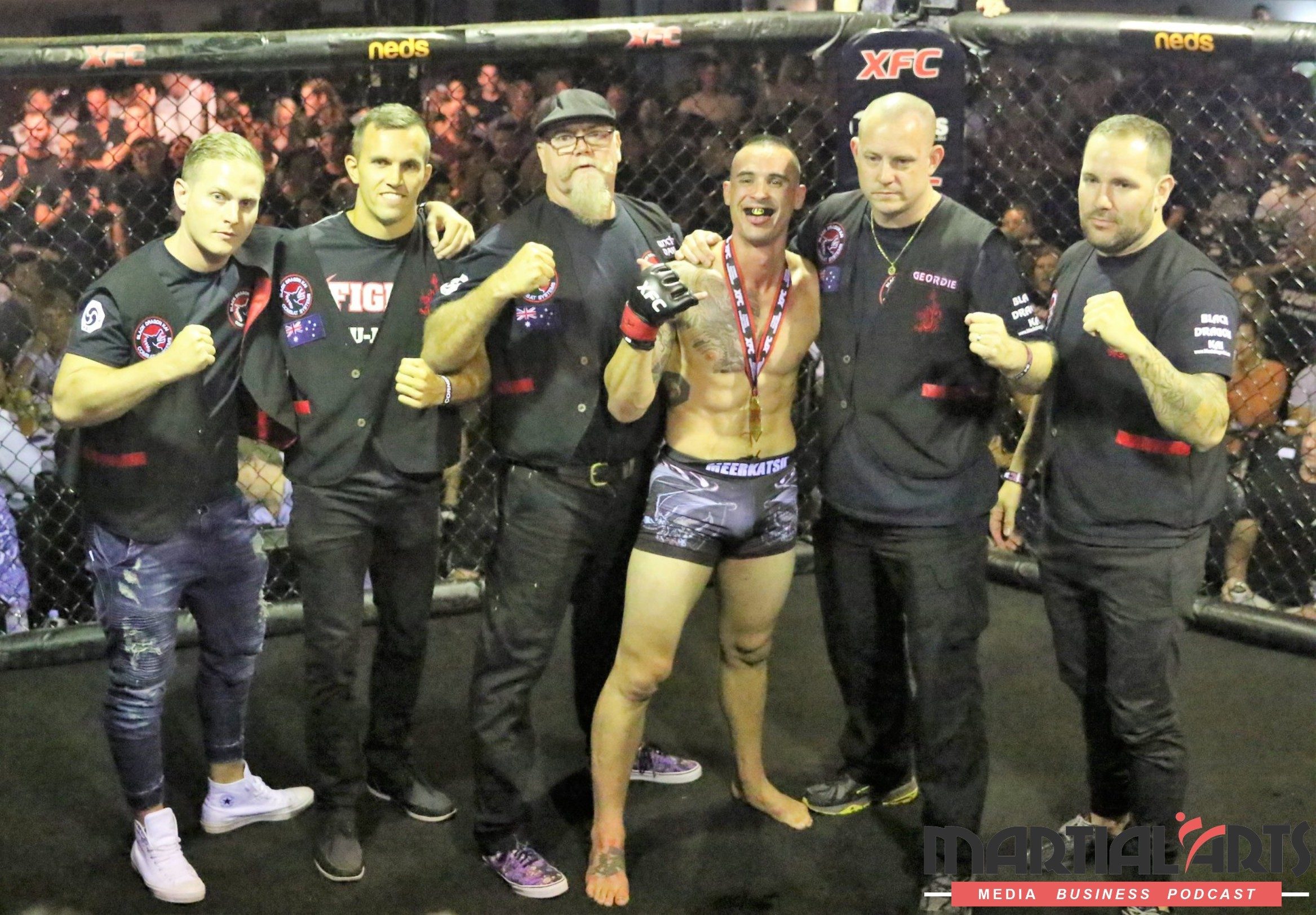
Also, we run wrestling tournaments, I've run a lot of Kudo tournaments as well and I run, even within my own club, because we do multiple styles, we run our own internal tournaments twice a year. I enjoy running tournaments, I find that once you've got a good system in place, it’s really, really easy to just continue on. I've got some really good staff members now, some of them are getting paid really well, some of them are almost on a wage, because what we're doing is, we're just making sure that they’re constantly able to organise the things that we need them to organise, so we can really offer a really good product to people who want to compete. We want to make sure it’s the smoothest and the easiest tournament.
We don't charge spectators at our tournaments either, especially jiu-jitsu, because to me, if you go watch jiu-jitsu, it's generally because your mom, your dad, your son, your daughter, your niece, your nephew – someone related to you, or some close personal friend is competing. You're not going there for the spectacle of it. No one is saying, “Hey, what are you doing Saturday or Sunday? Oh nothing. Oh, let's go watch a jiu-jitsu tournament,” – no one is doing that unless they're doing jiu-jitsu.
There are people who might go watch boxing or kickboxing or something, but no one is doing that for jiu-jitsu. It's probably pretty boring to watch, to be honest. The rules are really complicated, it's hard to sort of understand what's happening and the best guys in the world are the most exciting if you understand that when he changed his grip from the left lapel to the right lapel, that was really complex and something’s about to happen. But mom and dad don't get that, so why should we charge these people a spectator fee? So we also just make sure that everyone has the… We try to make everyone have the best experience that they can possibly have in our competitions.
We were doing really big customised medals, probably about 7 years before anybody else was doing that around. Really spent the money on things that we felt were important and we’re re-investing all the time, we’re actually sponsoring a movie, a Netflix level quality movie, to come out, a history of jiu-jitsu in Queensland. We’ve decided that we’re going to sponsor that. We don't have any credit control over it, so we’re just sort of hoping that it makes everyone look really good, hope it makes us look really good.
But the thing is, it might not. We've hired an independent director who's won multiple awards, and we’re like, OK, let's show everybody this. So we’re trying to put back in and the way we can do that is by running really good tournaments and people support it and we try to support the community back ourselves, so this is one of the things we're doing.
GEORGE: Awesome. So, on the business side, you've got lots going on. You're a man of few words, but your actions speak super loud of the things that you're doing. If we're talking on the business side, what do you feel is your big thing, your sort of zone of what you're doing in business that makes you really successful?

GEORDIE: I just really like teaching martial arts and teaching classes, so I think if you're passionate about what you do, people pick up on that. I can't even walk past a class that I'm not meant to be teaching and not want to get in there and teach. I think if you're genuine, people feel that genuineness and they want to follow on. I really love structure and systems. I really like analysing curriculums and developing systems for things and really trying to work out what the truth of something is and get the most result from that.
I'm lucky, I've trained a lot of champion athletes and my wife has 67 titles in 8 different combats. She's a world Muay Thai champion, Australian boxing champ, Australian Kyokushin champ, a high-level jiu-jitsu champion, multiple different things like that, national titles and so on. World combat wrestling champion, Kudo champion, MMA fighter… Heaps of different things like that. And basically, it’s just working out what works. And the business is exactly the same. So you sit there and go: how do I make something work?
So, once you work it out, if you get someone who’s a world Muay Thai champion, you can make them the world combat wrestling champion. She's hoping to get in the Olympic games for freestyle wrestling, coming up in Tokyo. If you can put those sorts of things together and you can work out what makes an elite athlete, what things should you focus on and you apply it to your business, OK, what makes a really good class? What makes a really good ad?
And even if the ad is to a completely different thing, or your classes are a completely different style, you can just put those key factor and key components together and work out what it is that's really important. What are the things that actually matter? Because there's a lot of fluff and there's a lot of other stuff out there that will get you a 1% return, or a 2% return here. But the reality is if you can get something that gives you a 25% return on effort, why spend time and effort on something that's going to give a lower yield result?
And then at the top end, you've got to be prepared to change so much of what you do. So I've done a lot of traditional martial arts styles and if you're saying to pure traditionalists that you can improve an aspect of what they do by, say, 80% if they change 2% of what they do, they won't do it. Like, my personal experience is that they just won't do it, because it's not traditional, it's not what they do. But if you say to an athlete, if you change 80% of what you do, I can give you a 2% return and you're at the top level – he'll change 80% of what they do.
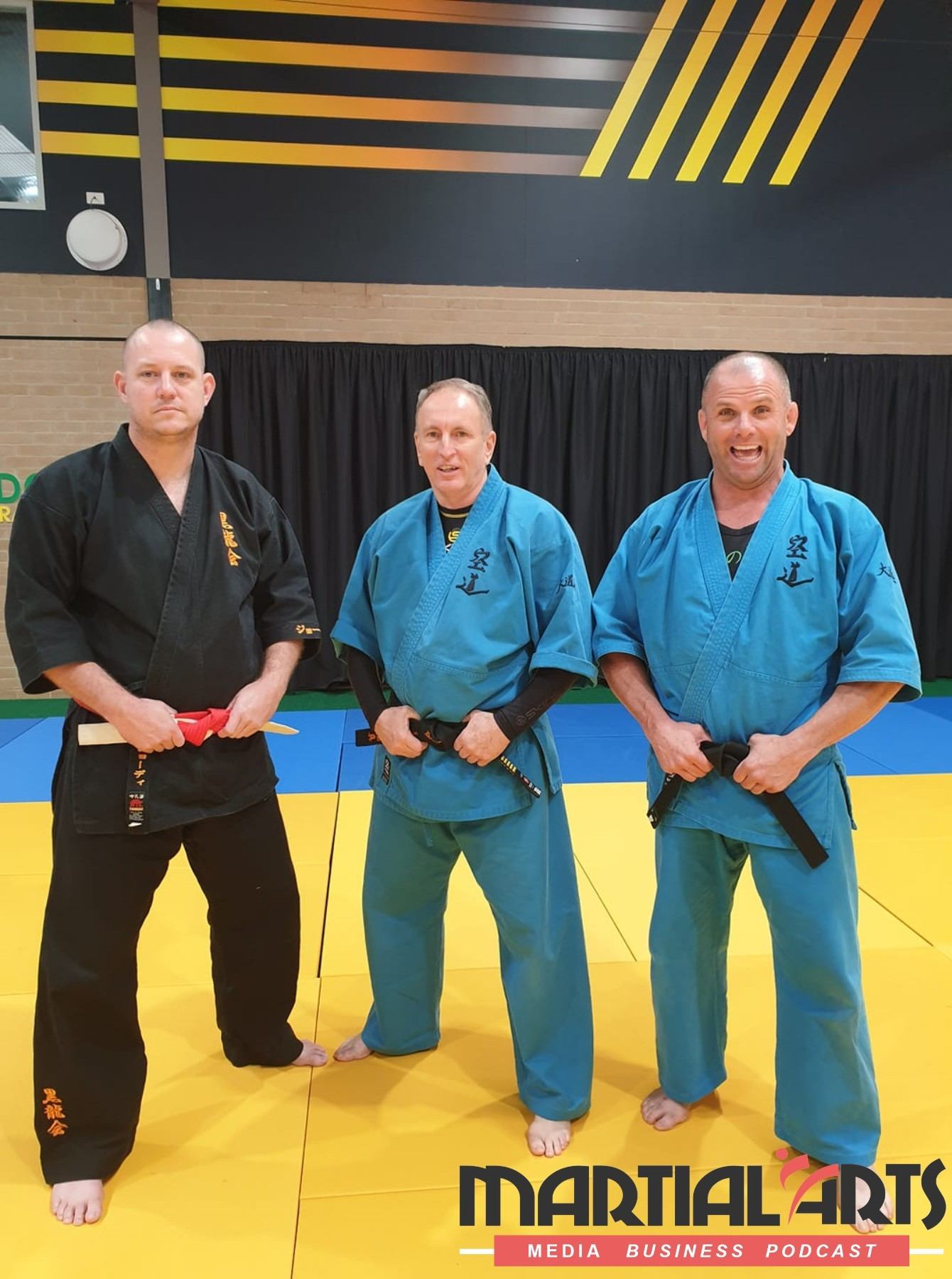
And if you take that sort of association across to business, if someone could say to you, I can improve your bottom line by 2% if you change 80% of what you do – that's an improvement. Why not do that? Because it's never going to be the other way around, it's never going to be if you change 2%, you're going to get 80% in return. Sometimes you've got to make big changes and look at those sorts of things, how do I get that slight, different improvement? And you've got to take risks and you've got to try and see what's the most up-to-date thing out there.
The first set of kettlebells I ever got, I imported from… I think it was the Czech Republic, somewhere over in Eastern Europe and no one had them in Australia. And I got this really old wrestling book that was actually written in Russian and they had kettlebells there. And they had a lot of pictures and I thought, that looks like a really good thing, how do I get those things? Took me ages to find out what they were called – and now you can buy them from K-mart.
So if you want to stay cutting edge too, you can't just rest on your laurels and say, yep, we've worked that out. You've got to be always like, well, what's changing, what's the next most proven, effective thing that you can do. And a lot of fads end up being not very good. Even people who do ice cold baths, research has now shown that just stretching lightly after training gives you the same result in recovery, but because all the football teams are doing it, everyone just assumed it was the way you should do it. So don't always just jump on fads either, try and do a bit of research and try and really work it out. Just because the good guys do it, doesn't mean it's actually giving any effect.
GEORGE: Cool. So on that, on optimising, you're talking about optimising little, making little changes that really optimise your business etc: is there something that you… You know, with optimising, sometimes it's easier to remove stuff than to just add stuff. Because I think we always want to… there's a danger in always wanting the best thing, because you end up kind of going halfway in a lot of things. You major in minor tasks type of thing. So is there sort of a couple of things that you really focus on to optimise your results, and are there things that you've kind of just eliminated from your school that you don't do, that maybe the everyday martial arts school would do?
GEORDIE: That's a good question. Things, I guess the key performance indicators are really important to see what's happening, but culture is pretty important. So I sort of look at, like I'm a little bit of a, what do I want my martial arts school to look like, as far as, is this somewhere I’d want to train, is this somewhere I’d want to do it. Sometimes that can be a mistake, because really, then you just start marketing to yourself. You know, someone who's doing martial arts for 8 years old, that's pretty tricky, because there are not too many of those other guys out there. But on the same take, you've got to sort of look and go, what do I want it to look like? What do I want it to feel like? And how do I cut those things out that I don't like?
Like, I don't do birthday parties at my club, because I don't want to do that. It’s something where I'm like, for me, it doesn't feel like it's something that I want to do, so I don't do it. But I know people who are way more successful, who do them. But it's just not the culture that I want to do. So I get success not because I don't get those people who do the birthday party to join up, but because maybe the culture that I'm trying to instil in my students is one where they feel that that's not what we do here, so they like that and they stay a bit longer. I'm not sure, I'm not sure a 100% on that, but there's little things where I know I'm doing different to a lot of other schools, but I kind of feel like that is kind of helping.
GEORGE: Hey Geordie, thanks for being on. And if… Any last words if people want to find out more about you? Where do they go?
GEORDIE: Probably Facebook would be the easiest. I'm Geordie Lavers McBain, G-E-O-R-D-I-E, Lavers McBain. I'm sure if you write the first one, the second one will turn up. Yeah, if you want to reach out, my club is called Black Dragon Kai and yeah, I really appreciate you wanting to interview me – thank you very much, you’ve had some amazing martial artists before, so to be grouped with those people, it's a bit of an honour, so thanks heaps George.
GEORGE: You're welcome. Awesome – thanks a lot Geordie and thanks Giorgio for driving us and keeping the podcast running.
GIORGIO: You're welcome!
GEORGE: All right, awesome – cheers.
Awesome. Thanks for listening. If you want to connect with another top, smart martial arts school owners, and have a chat about marketing, lead generation, what's working now, or just have a gentle rant about things that are happening in the industry, then I want to invite you to join our Facebook group.
It's a private Facebook group and in there, I share a lot of extra videos and downloads and worksheets – the things that are working for us when we help school owners grow and share a couple of video interviews and a bunch of cool extra resources.
So it's called the Martial Arts Media Business Community and an easy way to access it is, if you just go to the domain named martialartsmedia.group, so martialaartsmedia.group, g-r-o-u-p, there's no .Com or anything, martialartsmedia.group. That will take you straight there. Request to join and I will accept your invitation.
Thanks – I'll speak to you on the next episode – cheers!
Here are 3 ways we can help scale your school right now.
1. Join the Martial Arts Media community.
It's our new Facebook community where martial arts school owners get to ask questions about online marketing and get access to training videos that we don't share elsewhere – Click Here.
2. Join the Martial Arts Media Academy and become a Case Study.
I'm working closely with a group of martial arts school owners this month. If you'd like to work with me to help you grow your martial arts school, message me with the word ‘Case Study'.
3. Work with me and my team privately.
If you would like to work with me and my team to scale your school to the next level, then message me with the word ‘private'… tell me a little about your business and what you would like to work on together and I'll get you all the details.
Enjoyed the show? Get more martial arts business tips when you subscribe on iTunes for iPhone or Stitcher Radio for Android devices.
***NEW*** Now available on Spotify!
Podcast Sponsored by Martial Arts Media Partners





